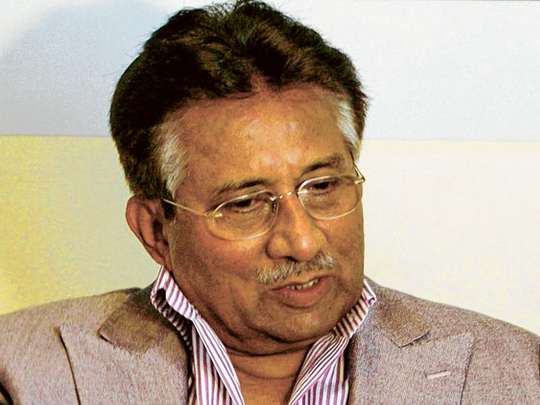
Islamabad: A special court hearing former Pakistan military ruler Pervez Musharraf’s treason trial was informed on Wednesday that the International Criminal Police Organisation (Interpol) had refused to issue a red notice against the retired general.
Ministry of Interior secretary Yousuf Naseem Khokhar told the court that the international anti-crime organisation had conveyed to Pakistan’s government that it does not issue red notices in political cases.
The two-member special court, led by Justice Yawer Ali, had asked the official how it could proceed with the trial when the accused was not appearing for court hearings.
The judge further directed the government representative to inform the court, at the next hearing, if it could record Musharraf’s statement via video conference — or if the case could be pursued without recording a statement.
The court also directed the interior secretary to submit a copy of the letter his department wrote to Interpol.
The next hearing of the case has been deferred to September 10.
During the hearing, prosecutor Akram Shaikh submitted an application to the court saying he wanted to detach himself from the case.
He also submitted that the new government should decide whether to continue with the case or not.
Shaikh added that Musharraf’s counsel, Farogh Naseem had become a part of the government and taken oath as Federal Minister for Law and Justice in PTI government.
Now the interior ministry would have to decide the future course of action pertinent to the case, he said. The court granted his plea and after Shaikh’s departure and it is up to the government now to find out the new counsel.
Shaikh had in the past repeatedly requested the special court to conclude the trial and issue a verdict in the absence of Gen Musharraf.
In the wake of July 25 elections and formation of the PTI government, Shaikh had submitted his resignation to the interior ministry after the election submitting “If the PTI wants to continue with the case, it can engage a lawyer to proceed with the case.”
He had ruled out the possibility that the government would withdraw the treason case against Gen Musharraf, saying it would be tantamount to aiding and abetting an accused person.
The special court had indicted Gen Musharraf for high treason in March 2014 and the prosecution had laid its evidence before the court by September the same year.
However, the special court could not proceed against the former dictator as the IHC had issued a stay order and Gen Musharraf subsequently left the country after the superior courts removed his name from the Exit Control List.
The special court later declared him a proclaimed offender and ordered confiscation of his properties. However, its order could not be executed due to the matter pending litigation in various courts.
The special court earlier this year resumed proceedings in the treason case and ordered that Gen Musharraf’s computerised national identity card (CNIC) and passport be blocked.
The outgoing PML-N government had in May executed the court order and blocked the absconder’s CNIC and passport which was later set aside by the apex court giving Mushrraf a chance to appear before the court and be part of the hearing.












